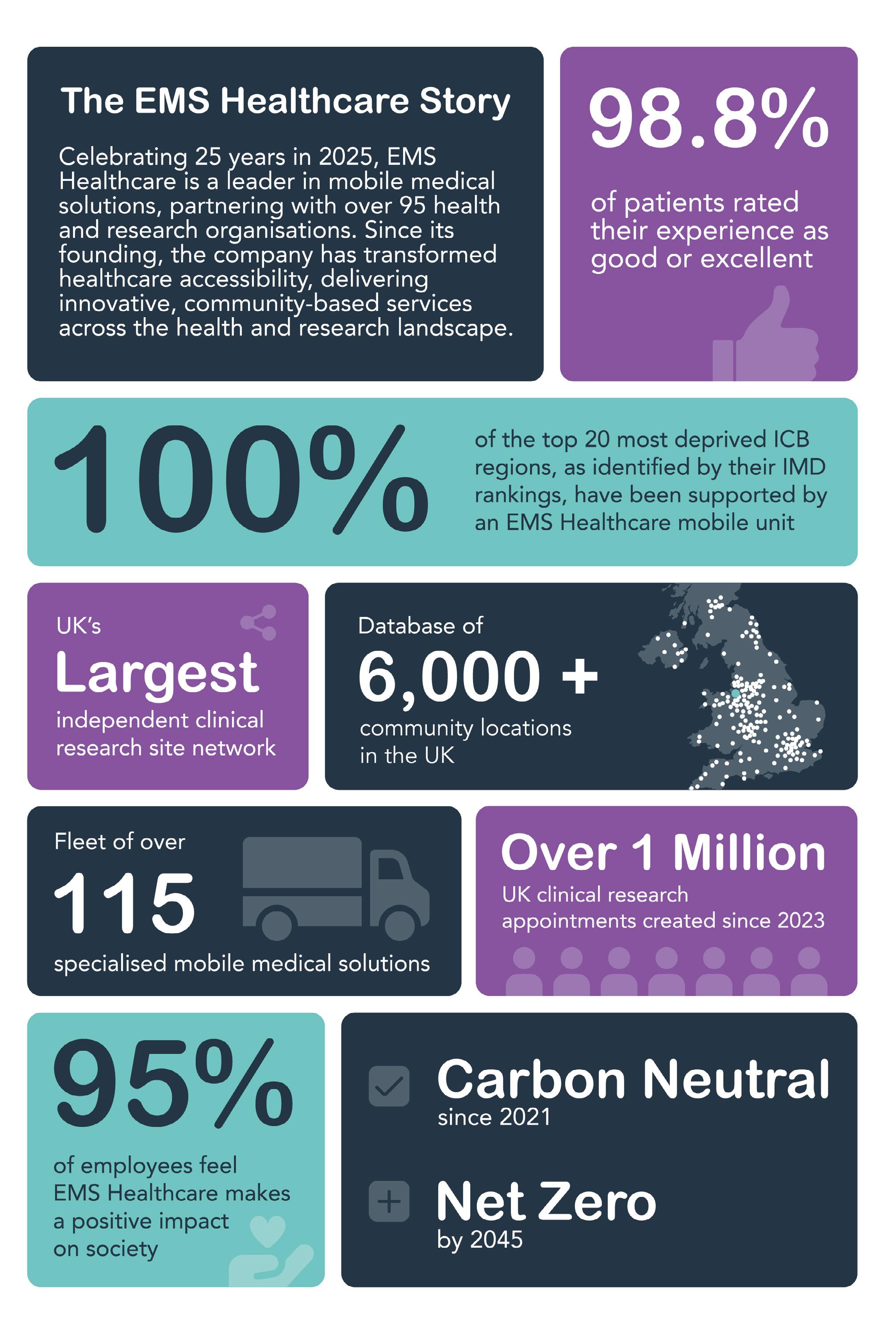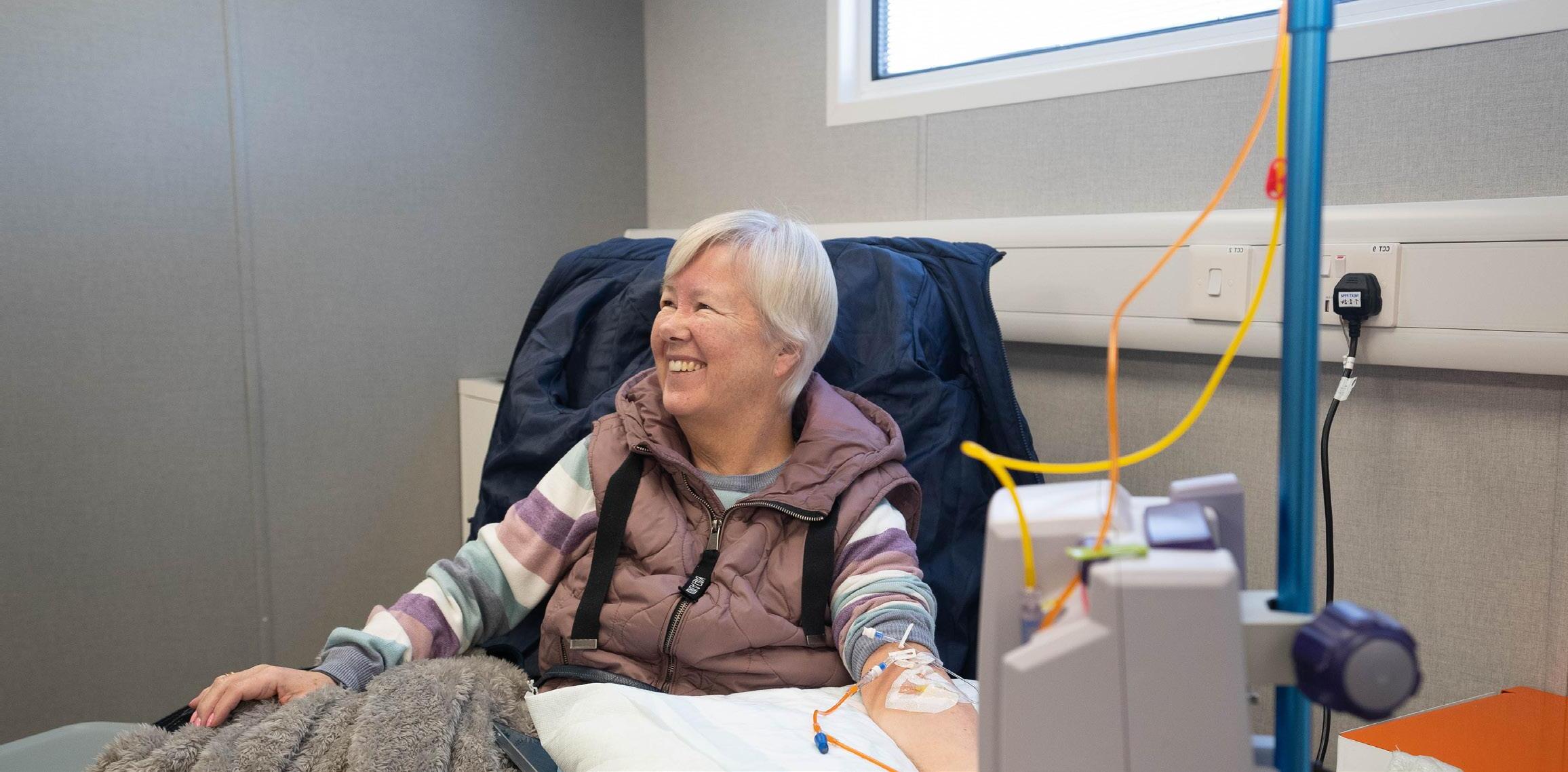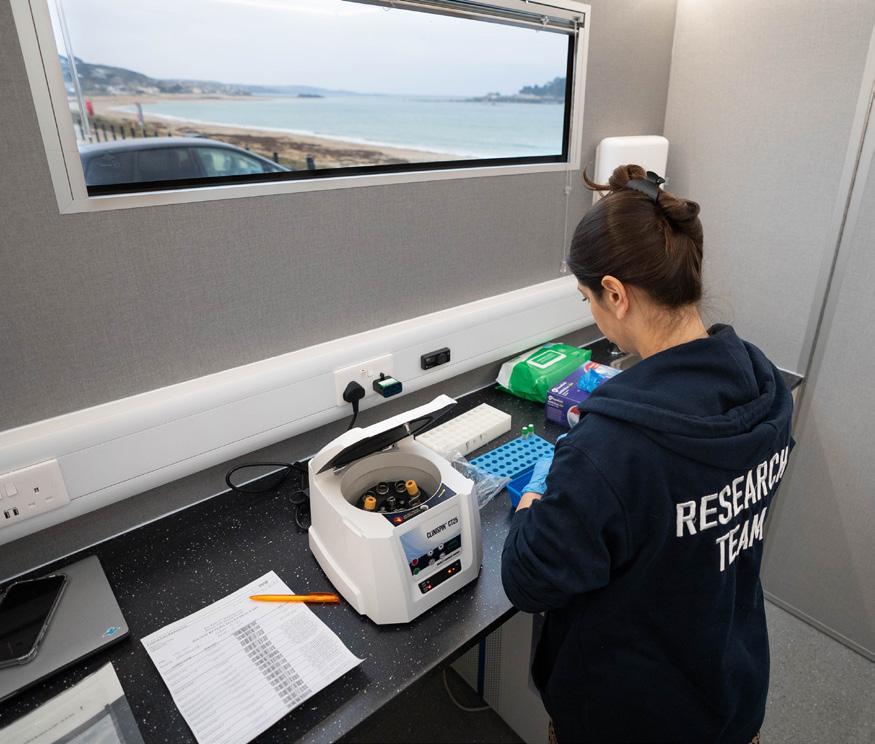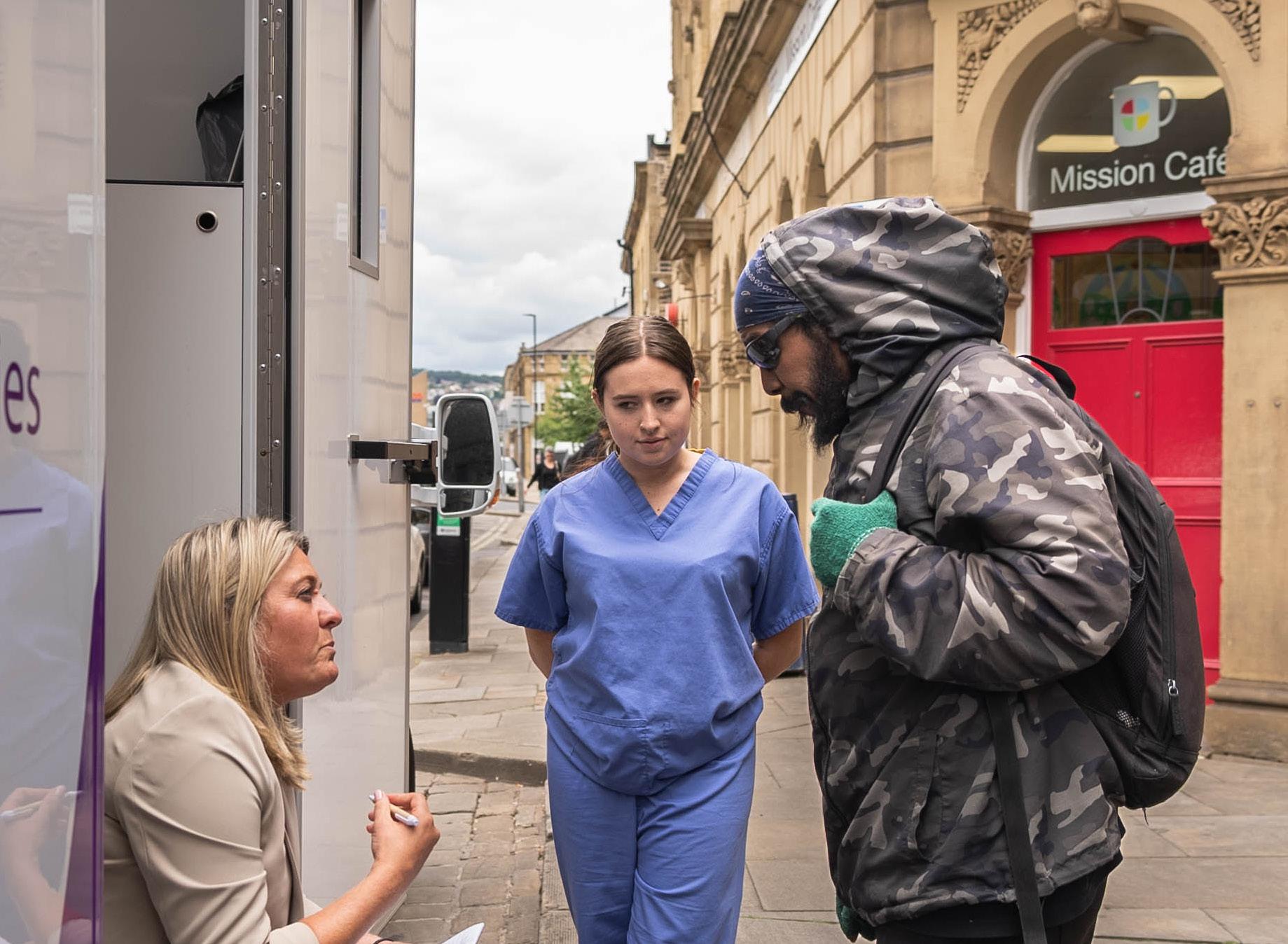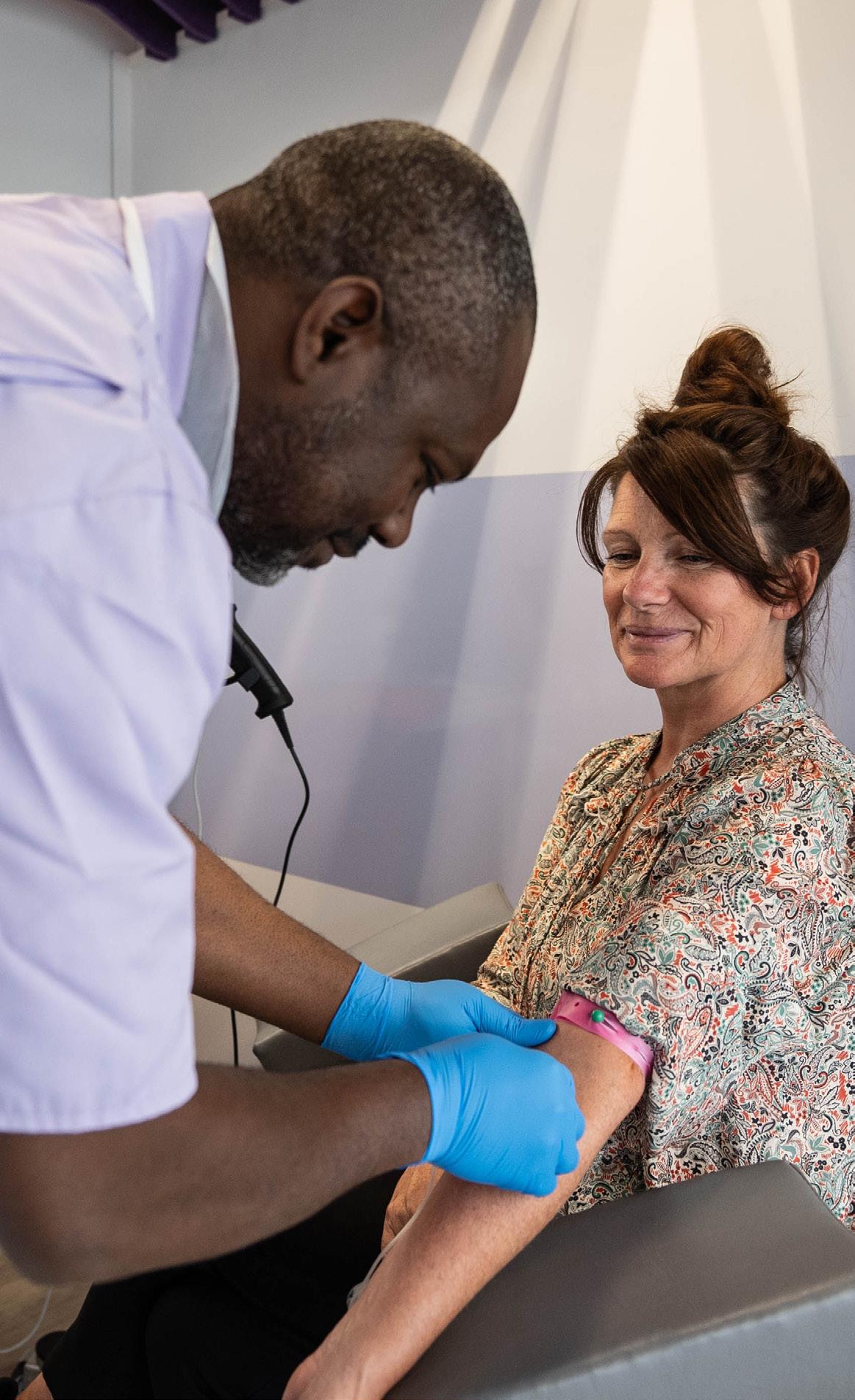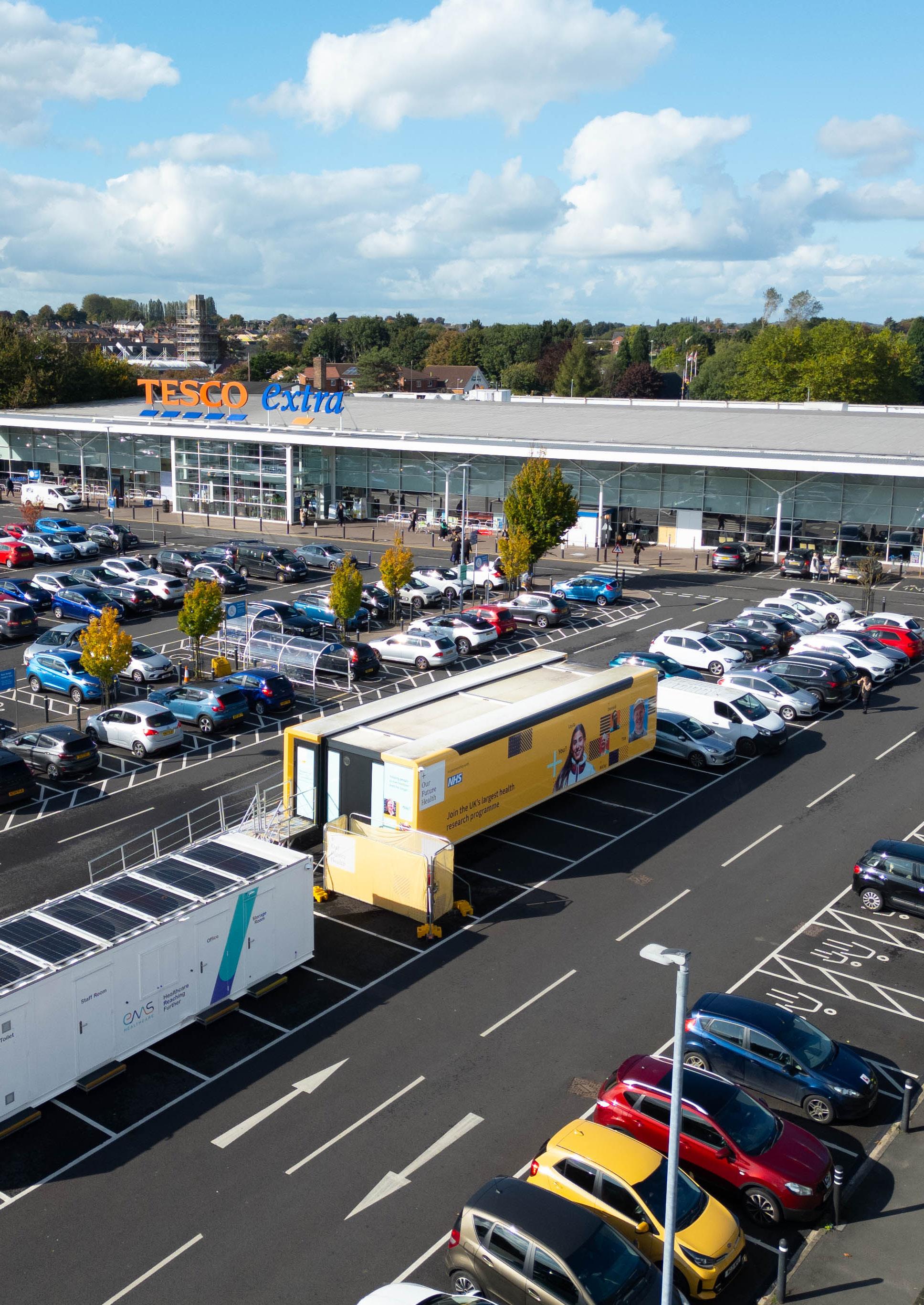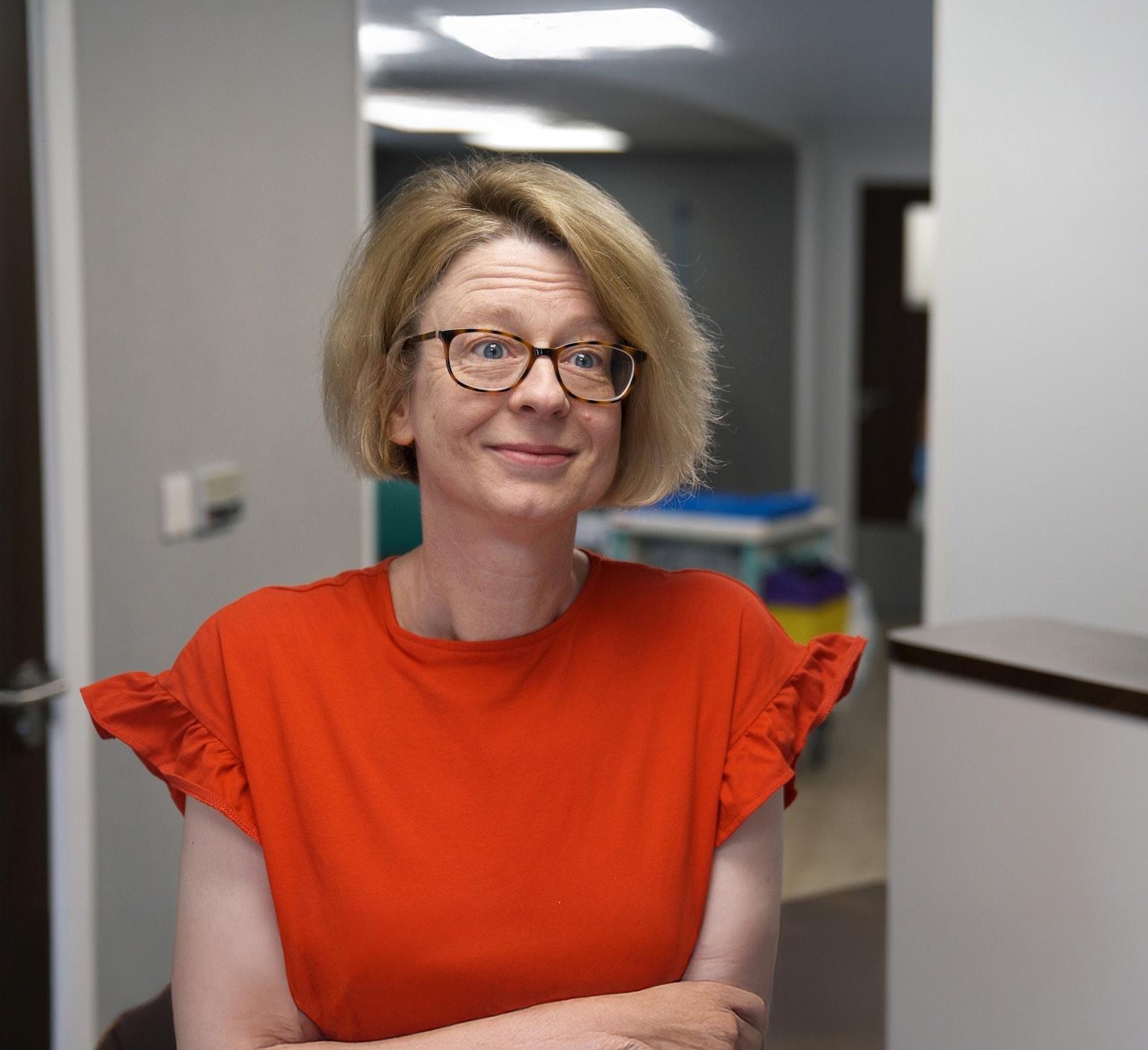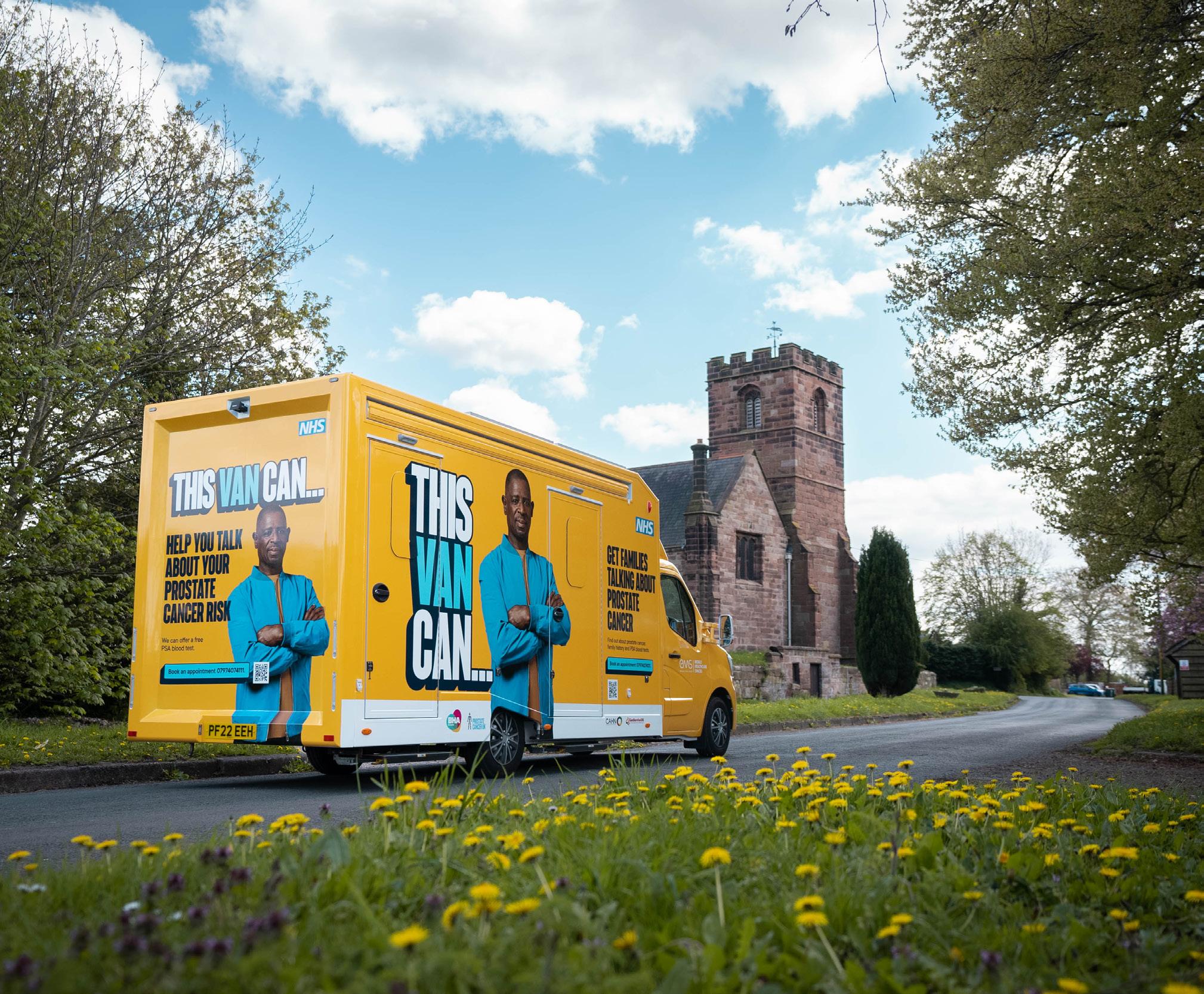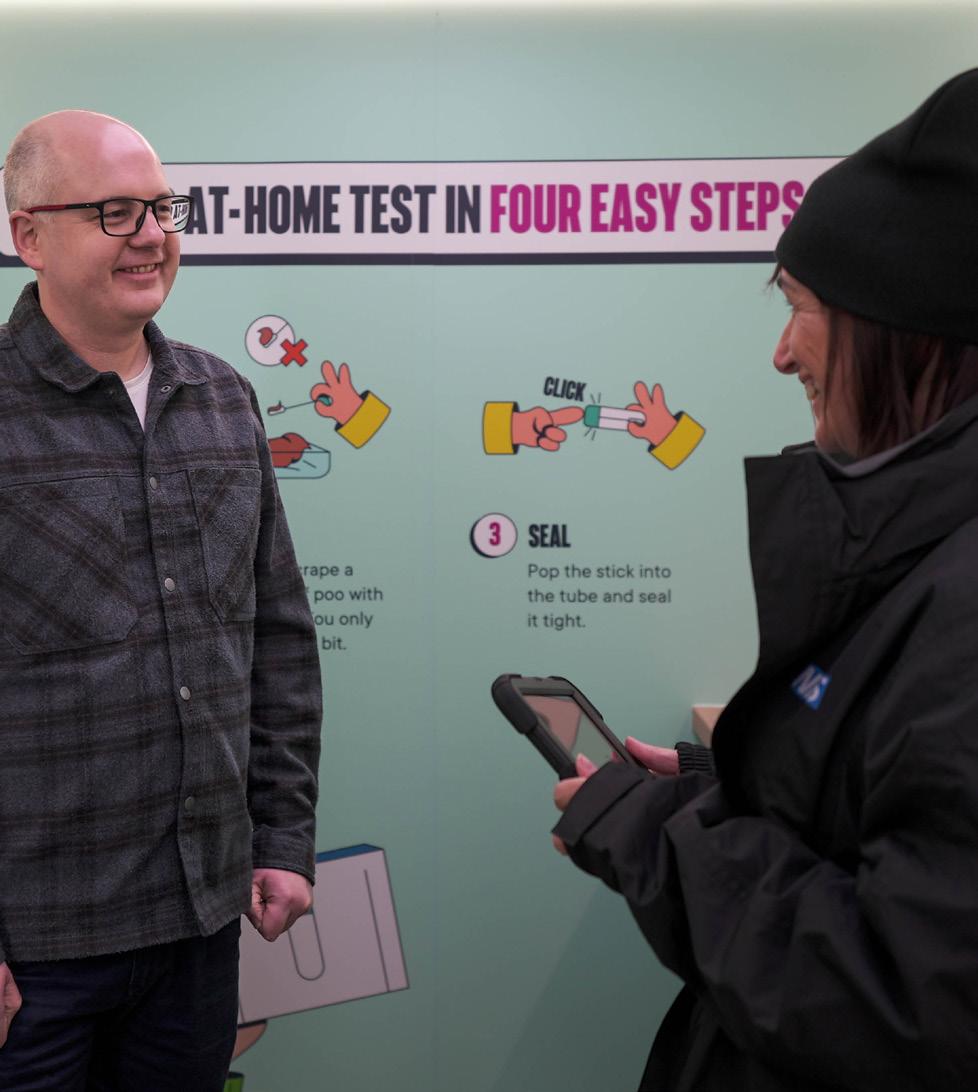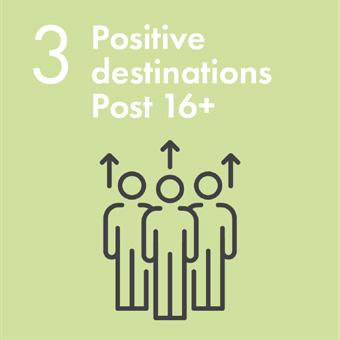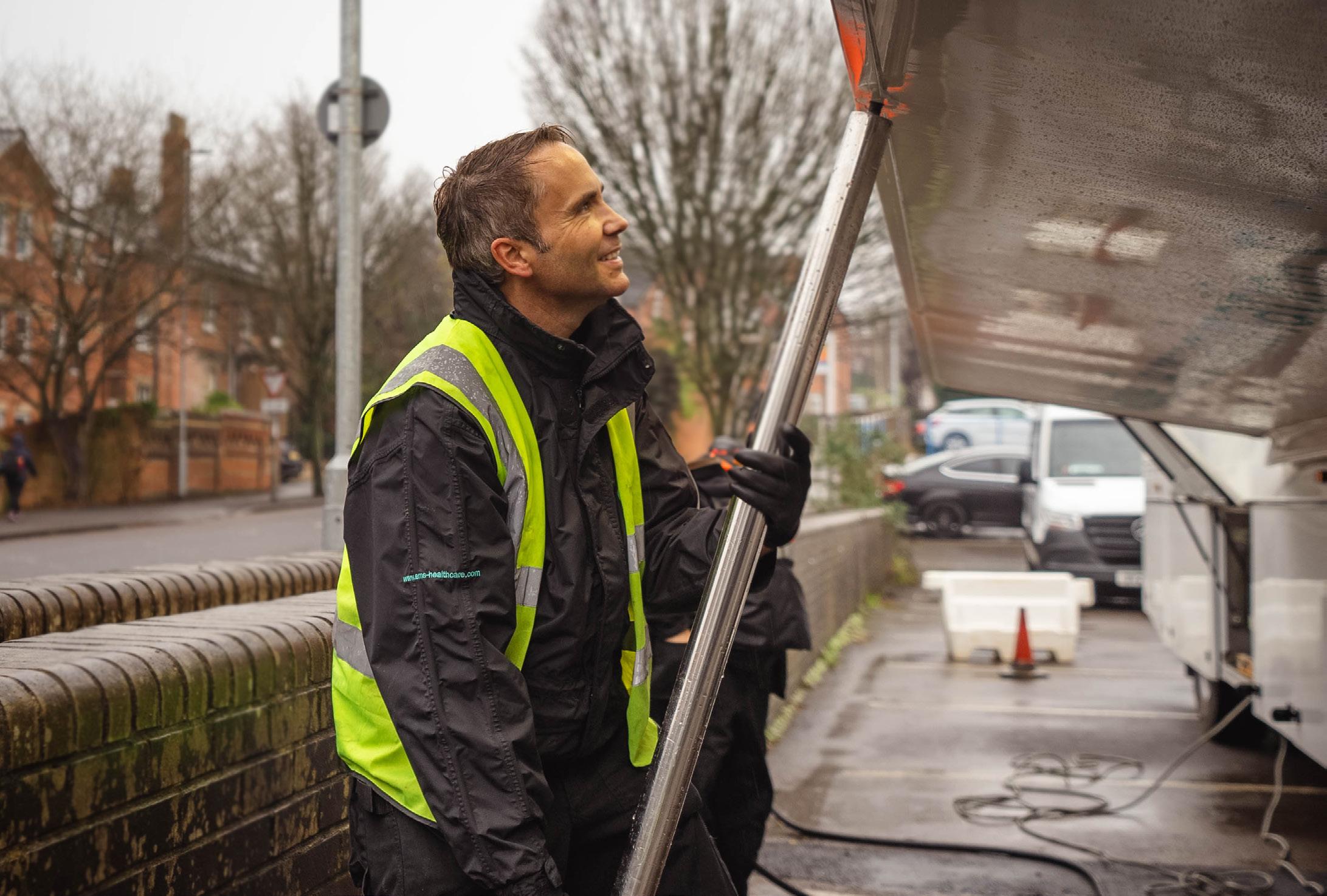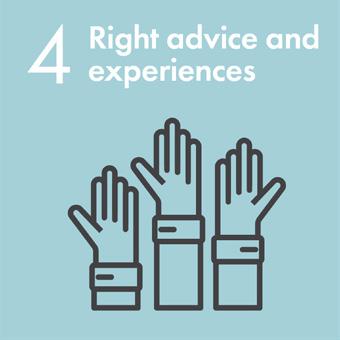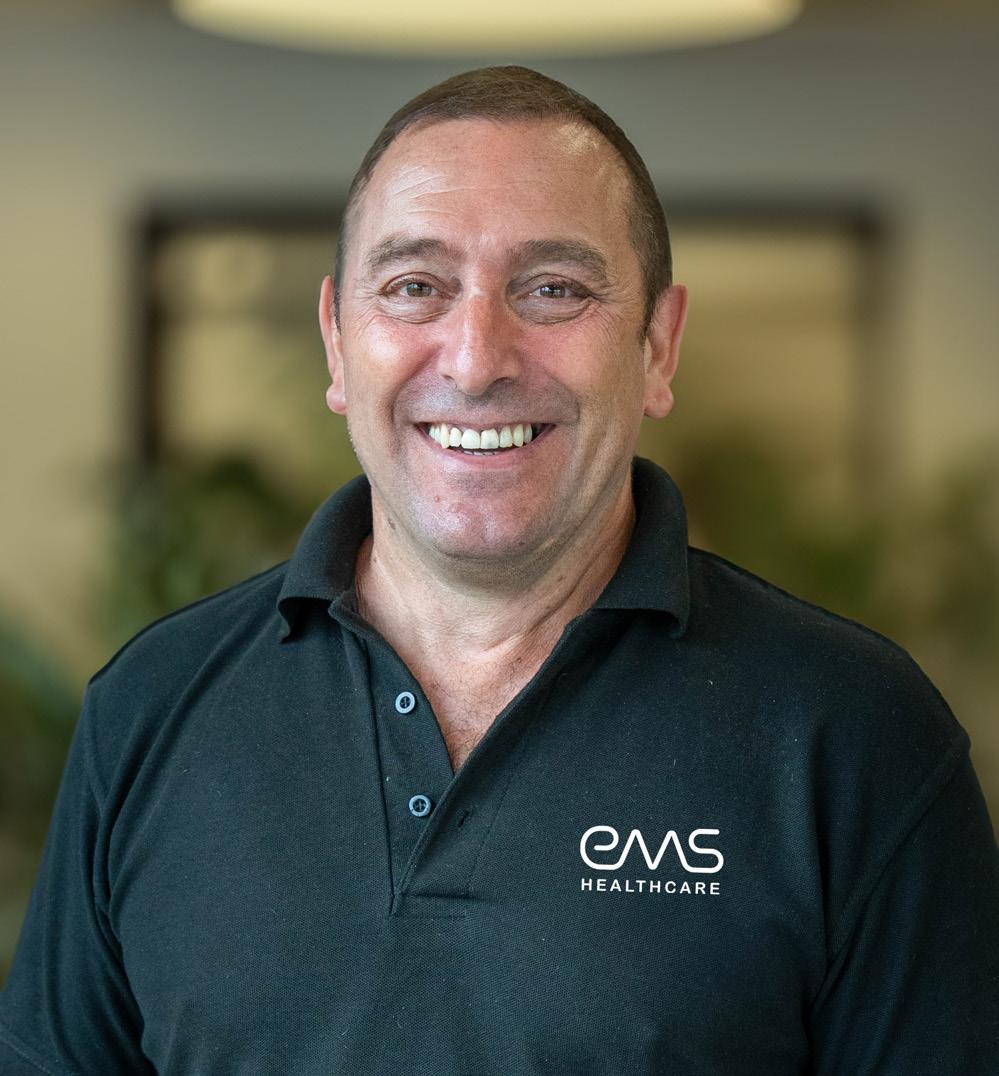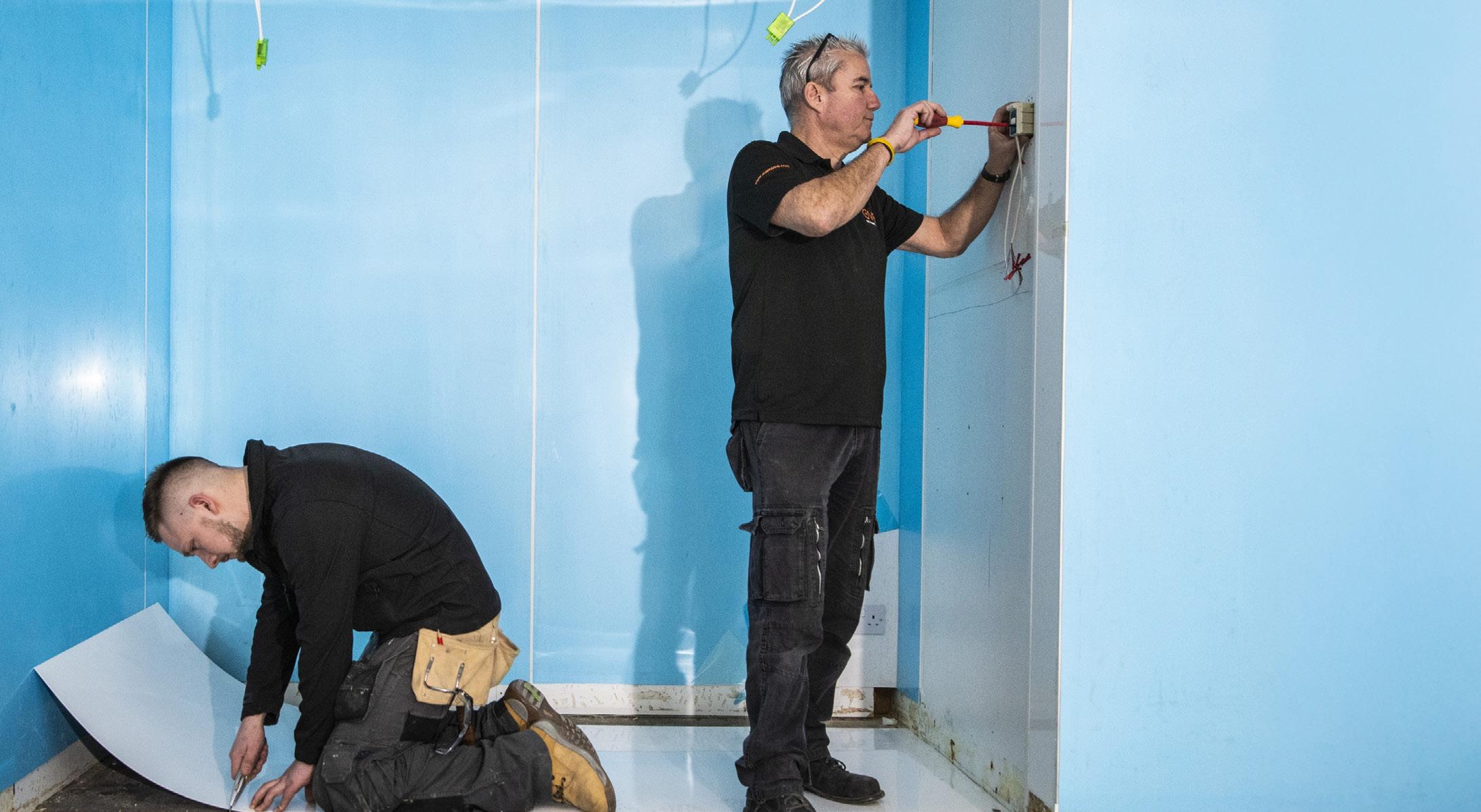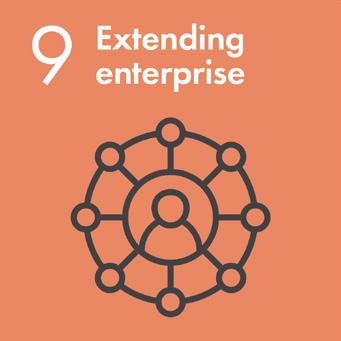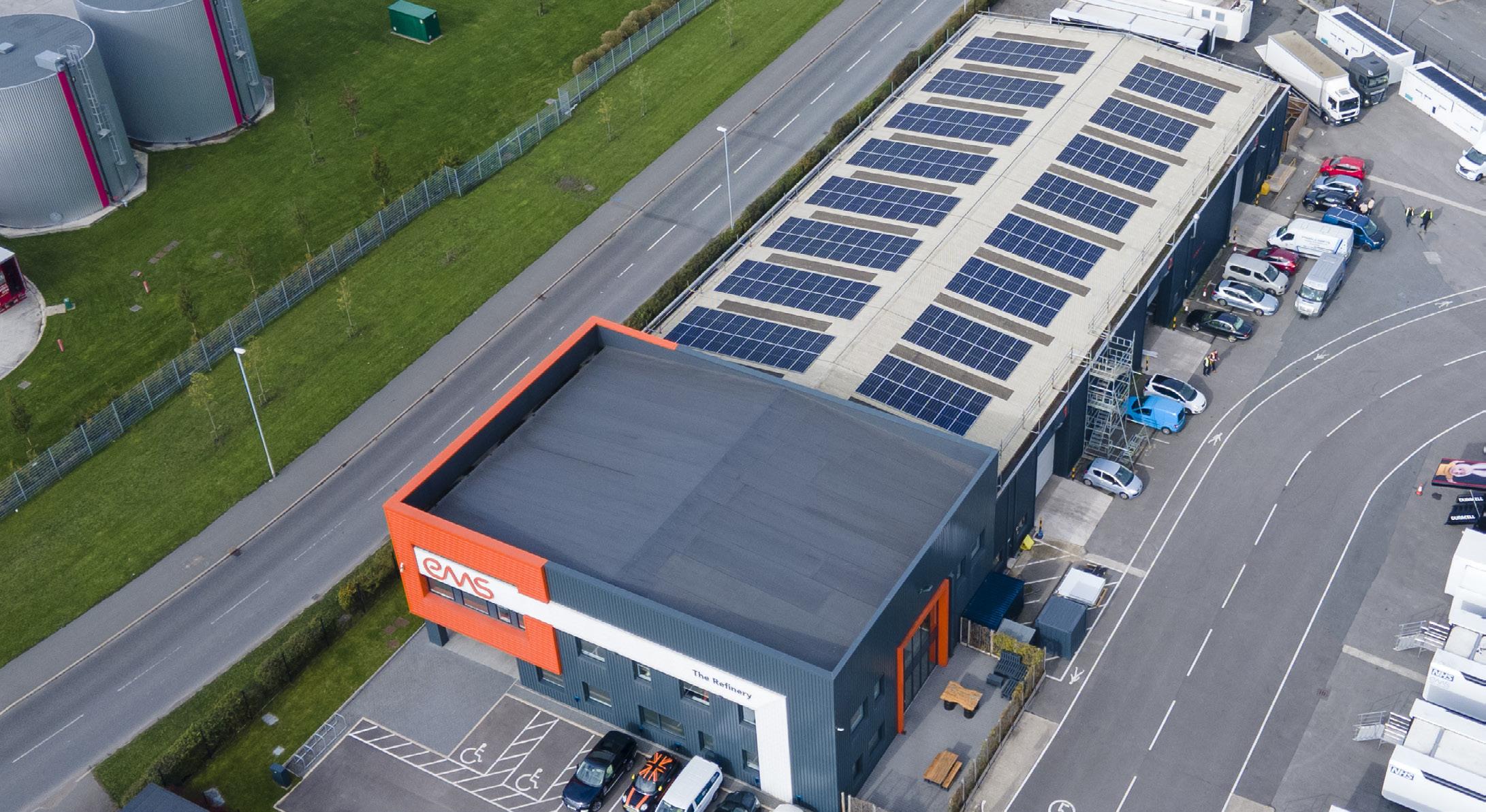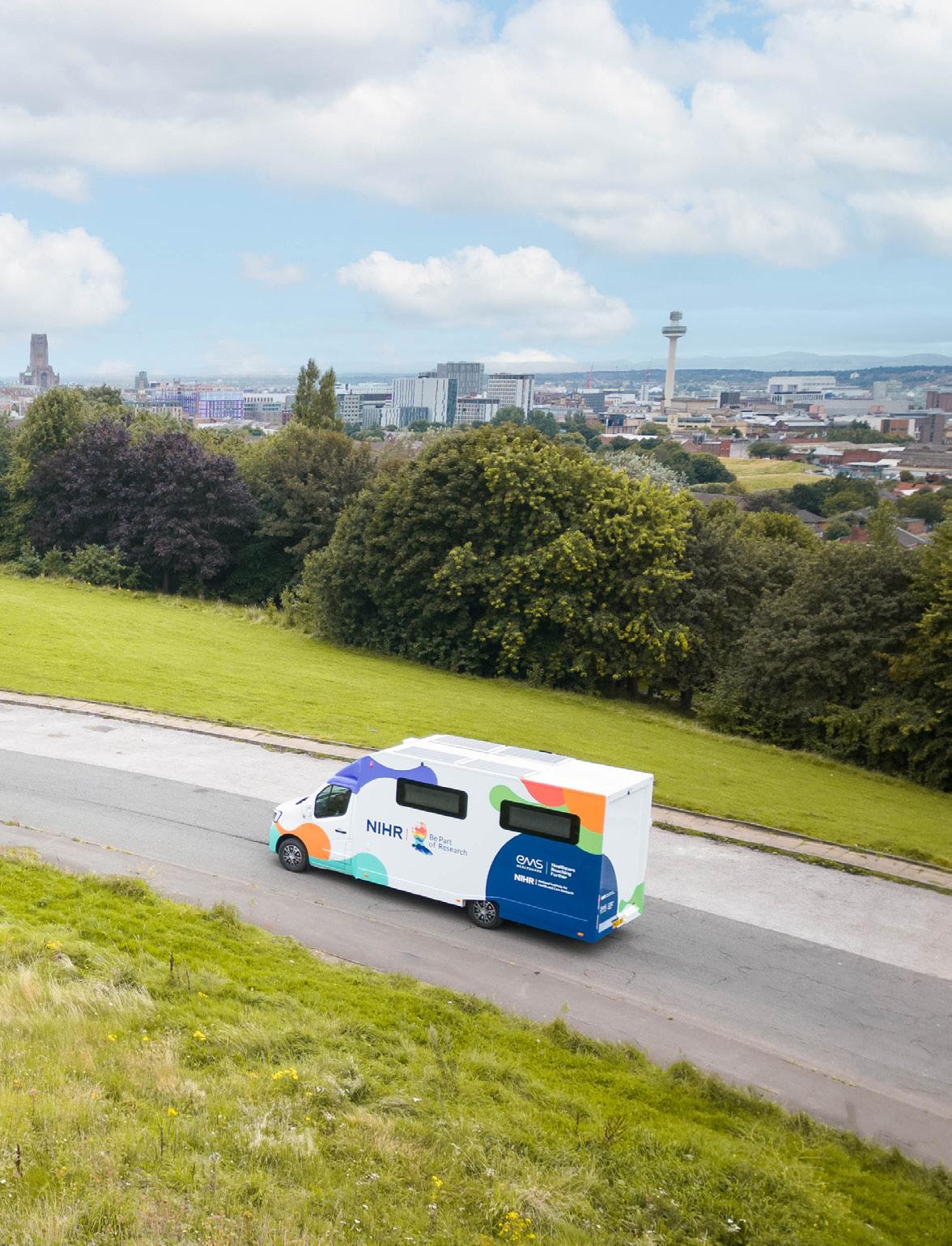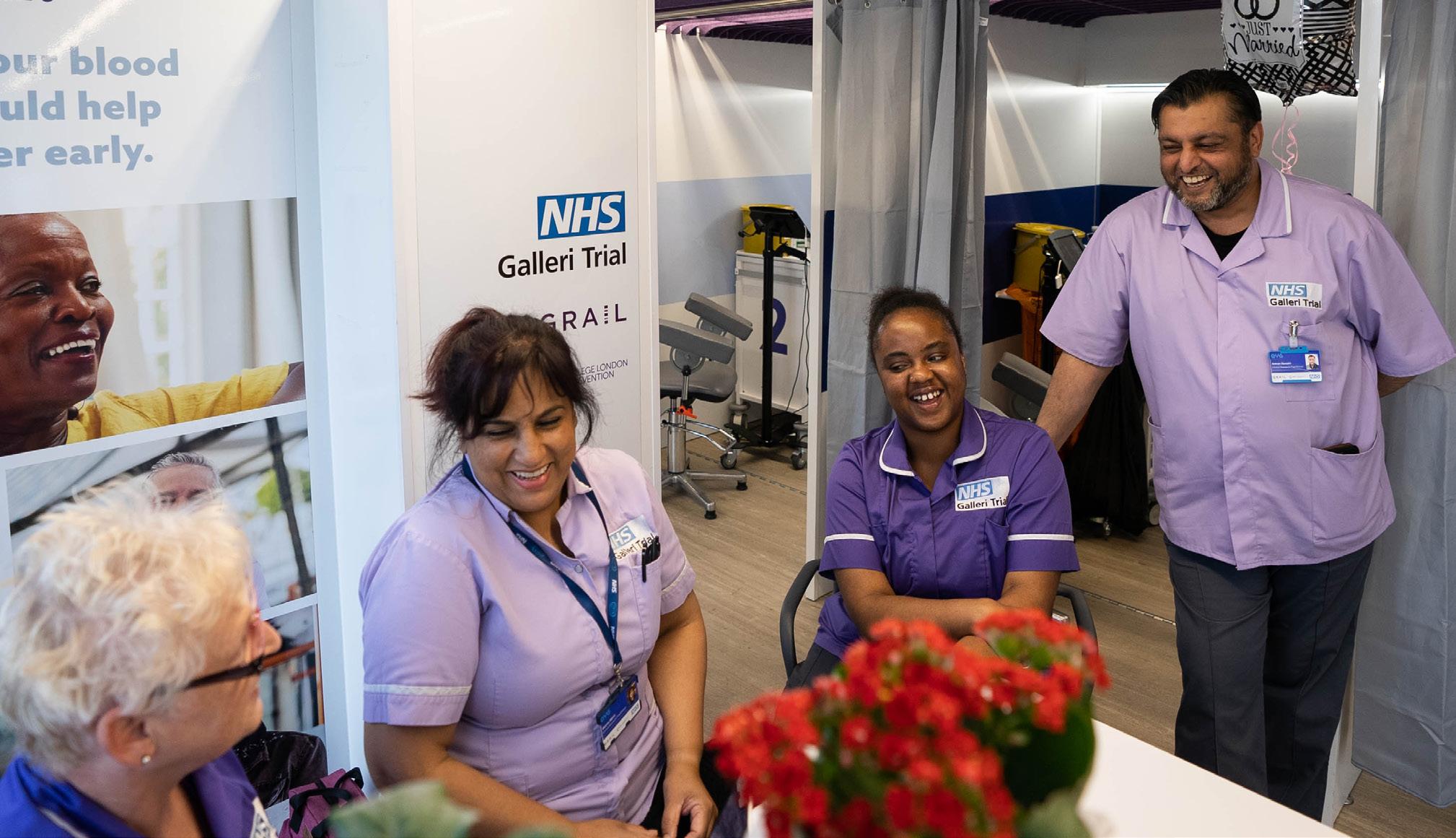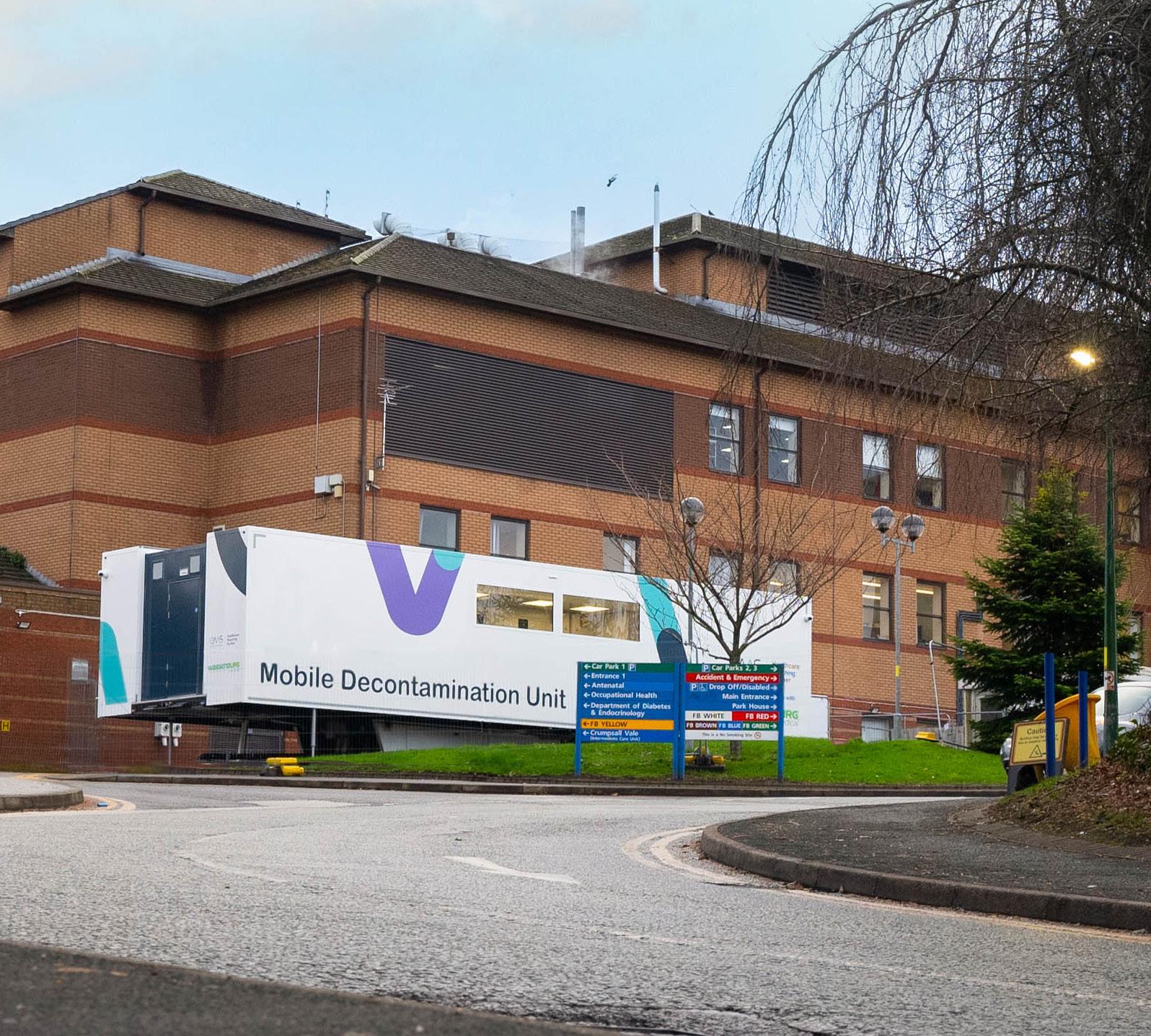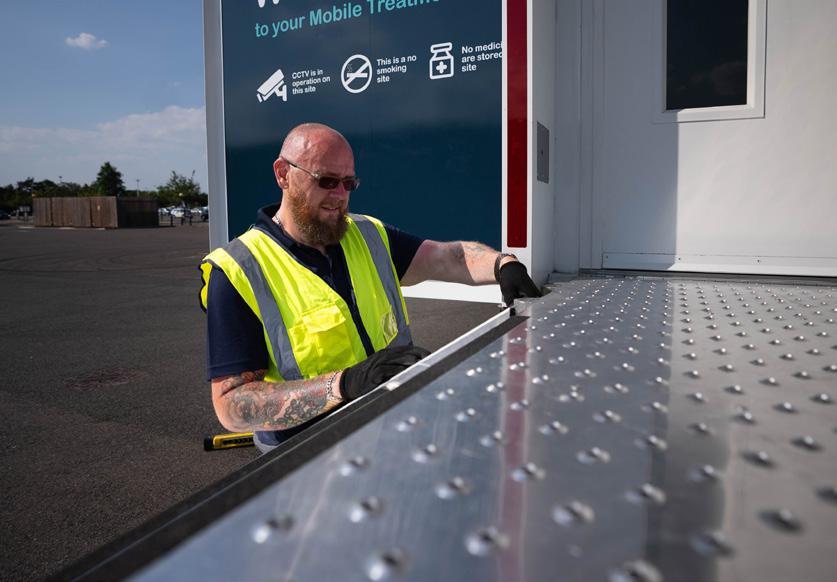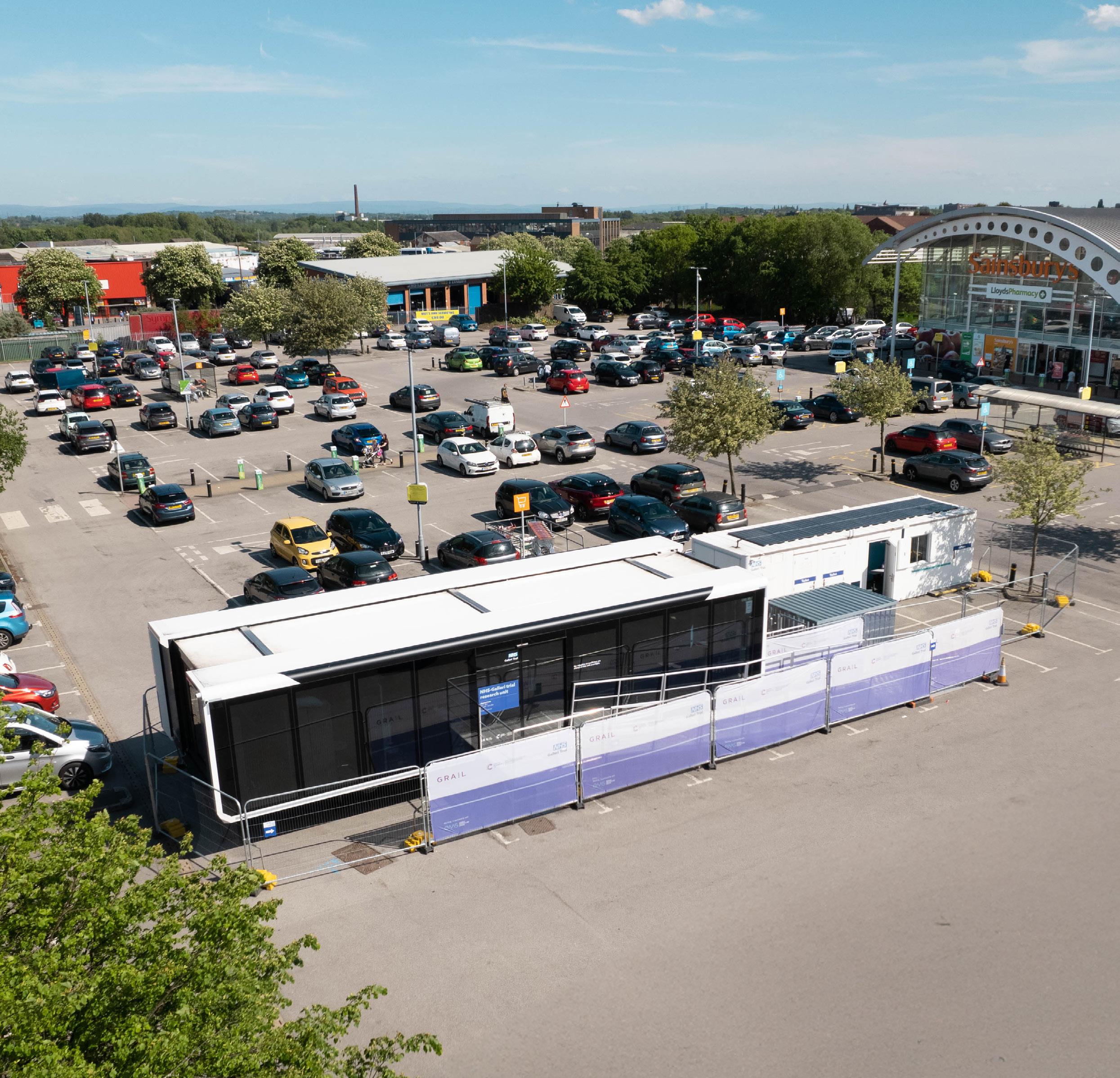2. Breaking Down Britain’s Barriers
The Purpose Coalition measures organisations against a set of sector-relevant social impact criteria. The Purpose Goals outline 15 interconnected impact barriers to opportunity. By drawing on expertise provided by academia and business, the goals are designed to specifically address some of the unique challenges facing the UK.
The Coalition’s cross-party work brings together the UK’s most innovative leaders, Parliamentarians and organisations to improve, share best practice, and develop solutions for improving the role that organisations can play for their customers, colleagues and communities by breaking down barriers to opportunity.
The Purpose Coalition is chaired by Rt Hon Justine Greening, the UK’s former Secretary of State for Education, Transport and International Development; and led by Nick Forbes CBE, who recently served in Sir Keir Starmer’s Shadow Cabinet, who leads the Purpose Coalition’s work with the Labour Party; Rt Hon Anne Milton, former Minister for Apprenticeships and a Minister in the Department for Health and Social Care; and Lord Walney, former No 10 Advisor to Gordon Brown and Labour Member of Parliament for Barrow and Furness.
The Goals were designed following Justine Greening’s experience - as Secretary of State for International Development - leading the UK’s delegation to the convention of the United Nations (UN) that established the 2015 UN Sustainable Development Goals (SDGs). The Purpose Goals apply the SDGs in a UK context.
The SDGs as interlinked goals emphasised the interdependent environmental, social, and economic aspects of development and centralised the role of sustainability.
At the time, Justine recognised how transformative a common set of accessible but ambitious goals could be in galvanising action to effect change. After leaving Government in 2019, Justine established the Purpose Coalition and Social Mobility Pledge with the intention of galvanising UK economic and social actors to improve social mobility in the UK.
The Purpose Goals focus on key life stages and highlight the main issues that need to be resolved to break down barriers to opportunity in the UK.
The Goals are intended to guide ambition, provoke action, and measure progress.
Throughout this report, place-based data assessments using the Indices of Multiple Deprivation (IMD) have also been embedded to provide a greater understanding of the unique challenges faced by communities.
The IMD provides a comprehensive and reliable measure of deprivation, helping us identify areas where barriers to opportunity are most pronounced.
By analysing the data across the IMDs’ seven domains, we gain valuable insight into the factors affecting income, employment, education, health, housing and more.
This data-driven approach ensures that our strategies are focused, equitable and impactful, enabling us to address deprivation effectively and support communities where it’s needed most.
3. How EMS Healthcare is making a difference against the Purpose Goals
EMS Healthcare demonstrates positive social impact across the Purpose Coalition’s fifteen Purpose Goals, with a particular focus on three Purpose Goals which are central to the business’ work:
• Goal 8: Good Health and Well-Being
• Goal 11: Infrastructure for Opportunity
• Goal 12: Place: Building Sustainable Communities
University Hospitals of North Midlands NHS Trust
In April 2024, the University Hospitals of North Midlands (UHNM) faced a critical backlog, with approximately 4,100 surveillance and planned patients overdue for treatment and around 2,300 diagnostic patients facing delays, posing a significant clinical risk. With in-house capacity fully utilised, UHNM sought an alternative solution.
To address this, UHNM partnered with EMS Healthcare and Medinet to deploy a dualprocedure mobile endoscopy suite, complete with decontamination facilities. The suite was launched and became fully operational within just five weeks, significantly enhancing the hospital’s ability to clear the backlog. The first patient treated had been waiting for over a year, and the unit operated seven days a week, screening approximately 727 patients per month.
According to NHS England’s Diagnostic Wait Times data: in the months before the August 2024 deployment, an average of 3,047 patients were waiting , with 43.4% exceeding the 13-week threshold.
Since deployment, these figures dropped to an average of 1,811 patients per month, with the proportion waiting 13+ weeks declining from 36.7% to 20.3% - a 16.4% reduction. In comparison, the eight months before deployment saw only a 14.5% decline, demonstrating an accelerated reduction since implementing the EMS Healthcare solution.
According to the Head of Operations Medicine for Planned Care at North Midlands, the initiative led to significant improvements in timed cancer pathways, reducing patient waiting times and enhancing early diagnosis. The project successfully eliminated 52-week wait times, improving Referral to Treatment (RTT) performance. Additionally, it played a crucial role in preventing acute admissions, easing pressure on inpatient services, and contributing to reduced admissions in both the Gastroenterology and A&E departments.
Cheshire and Wirral Partnership NHS Foundation Trust
EMS Healthcare supports Cheshire and Wirral Partnership NHS Foundation Trust (CWP) operating three NHS Living Well buses, bringing vital healthcare services directly to communities across the region. Established to reduce health inequalities, the buses have delivered more than 40,000 health screenings in just two years, improving access to essential care for underserved populations.
The Living Well buses offer a range of on-thespot services, including vaccinations, screenings, referrals, and well-being advice. By providing care outside traditional healthcare settings, the mobile clinics help CWP alleviate pressure on hospitals. Designed for flexibility, the Living Well buses can adapt to evolving community needs, ensuring care reaches those who need it most. From administering over 23,500 Covid-19 vaccinations to offering cervical screenings with language interpretation, the Living Well buses deliver critical healthcare services in convenient, accessible locations.
Deprivation in Cheshire
From an analysis of the domains of deprivation, 7.6% of Cheshire West and Chester’s communities fall within the most deprived 10% of communities nationally. Using a weighted sliding scale that considers the most deprived 30% of areas nationally, 15.8% of Cheshire West and Chester’s population live within the most deprived 30% of communities.
Locala Community Partnership CIC
Locala’s ‘clinic in a van’ addresses health inequalities by providing essential services to underserved communities, particularly those facing barriers to mainstream healthcare, such as people experiencing homelessness. The clinic is flexible and mobile, offering care directly to areas of deprivation and high foot traffic, reducing the need for individuals to travel long distances to access medical services. This approach has been crucial in reaching vulnerable populations and ensuring they receive timely healthcare.
One of the mobile clinic’s key successes has been in improving childhood vaccination rates, especially in busy or underserved families. By offering drop-in vaccination sessions in community locations, the clinic makes it more accessible for parents or caregivers to get children vaccinated without needing to take time off work or travel long distances. This was particularly important during the national measles outbreak, where the team
targeted areas with low MMR vaccine uptake, providing a convenient and essential service to protect public health.
The ‘clinic in a van’ impact extends beyond vaccinations, supporting services for vulnerable communities such as sexual health care and advice, wound care and health outreach at community events. By bringing healthcare directly to where people gather, the clinic reduces pressure on hospital services and engages marginalised groups who might otherwise not access care.
With the link between poor health and poverty widely acknowledged, EMS Healthcare’s partnership with Locala ensures that children and adults from disadvantaged areas are not prevented from receiving healthcare due to their socio-economic status or geographical location, demonstrating how adaptable, community-based healthcare can effectively reduce health inequalities.
3.8.2 Clinical Research
EMS Healthcare is the UK’s largest independent clinical research site network, dedicated to making clinical trials more inclusive, accessible, and efficient. By delivering community-based research sites, EMS Healthcare reduces barriers to participation, decreases patient burden, and enables more people, especially those from underserved communities, to take part in research.
With scalable, flexible solutions, EMS Healthcare supports everything from rare disease studies requiring highly targeted recruitment to large-scale trials needing high-volume participation. Their mobile infrastructure and national reach provide unrivalled access to underserved communities across the UK.
A data-driven, study-specific site selection strategy ensures trial locations align with research objectives. EMS Healthcare’s national agreements with major grocery retailers provide access to over 6,000 potential research sites, accelerating recruitment, improving retention, and enhancing trial diversity, ultimately strengthening the quality and impact of clinical research.
Our Future Health
EMS Healthcare is playing an essential role in supporting Our Future Health, the UK’s largest health research programme, which aims to collect data from 5 million people to improve the understanding of chronic disease prevention, detection, and treatment. EMS Healthcare is providing state-of-the-art mobile clinical units, crucial for carrying out research appointments across the country in this groundbreaking initiative.
These mobile units are strategically placed in easily accessible, high-footfall locations such as retail parks, community hubs, and outside supermarkets, effectively reducing location and travel barriers that might otherwise prevent people from participating. The use of community-based
research sites has been pivotal in increasing representation, with 6% of participants from Asian backgrounds - a demographic often under-represented in health research - and 10% from the poorest and most deprived areas of the UK.
Our Future Health has become the most ethnically diverse health research initiative in UK history, breaking down barriers to healthcare participation and contributing to a more inclusive and comprehensive understanding of health outcomes.
BEST4
Launched in 2024, the BEST4 oesophageal cancer screening trial showcases EMS Healthcare’s leading role in delivering largescale, community-based clinical research and the ongoing commitment to partnering with healthcare and research organisations to deliver better health outcomes. As the sole site network for the study, EMS Healthcare provides five mobile screening vehicles and ten dedicated EMS research nurses to deliver the capsule sponge test to people experiencing chronic heartburn, aiming to test its efficacy in detecting Barrett’s oesophagus, a precursor to oesophageal cancer. The trial, led by Cambridge University Hospitals NHS Foundation Trust and the University of Cambridge, is funded by Cancer Research UK and the National Institute for Health and Care Research.
The capsule sponge test is a faster, more affordable alternative to the traditional gold-standard diagnostic endoscopy, and it can be quickly administered
by a nurse, offering a streamlined and accessible approach to screening.
EMS Healthcare’s mobile units play a crucial role in facilitating this by bringing the test to participants, which significantly reduces barriers to participation, such as travel and location constraints.
The three-year project, which aims to recruit 120,000 participants who experience chronic heartburn, is a key step in evaluating whether the capsule sponge test could eventually be integrated into cancer screening programmes across the four UK nations. Ultimately, the BEST4 trial could reduce the need for invasive cancer treatments and help prevent deaths from oesophageal cancer. EMS Healthcare’s community-based research sites are essential in ensuring the trial reaches a broad and inclusive participant group, accelerating recruitment and contributing to this important research in cancer prevention.
The capsule sponge test takes ten minutes to do and can be done by a nurse – making it much faster and less expensive than endoscopy. The trial will find out if the capsule sponge test can reduce the need for cancer treatments and prevent deaths from oesophageal cancer.
“I can pick up my daughter from nursery straight after treatment and be in the park. Time is everything, and having a day back every three weeks is amazing. It’s what money can’t buy.”
Judy Kennedy, a patient with stage 4 incurable cancer on the positive impact of the mobile treatment suite
3.11 Goal 11: Infrastructure for Opportunity
The importance of health and research being closer to homes cannot be overstated, as it can significantly improve accessibility, convenience, and overall well-being. When healthcare facilities and clinical research units are located nearer to communities, individuals have more opportunity to seek medical attention and stay on top of preventive care, leading to better health outcomes. Localised research also allows for studies and treatments to be more tailored to the specific needs of the population, fostering more personalised and effective solutions. Furthermore, proximity to healthcare encourages stronger community health initiatives, empowers individuals to take charge of their health, and helps to reduce the burden on hospitals. This localised approach ultimately fosters a more proactive, engaged, and healthier society.
3.11.1 Mobile Healthcare Units
Mobile units are a proven solution for improving healthcare accessibility and advancing public health research, particularly in underserved or remote areas. By bringing essential services directly to communities, they reduce barriers to care and alleviate the burden on overburdened health facilities.
Royal Surrey NHS Foundation Trust
EMS Healthcare, in partnership with the Royal Surrey NHS Foundation Trust and Lloyds Clinical, is transforming cancer care delivery across Surrey by delivering chemotherapy and immunotherapy treatments in a mobile treatment suite. This innovative approach reduced the time patients spend travelling for appointments, allowing them to focus on what matters most, spending time with family.
With 90% of patients traveling less than 20 miles for treatment, the mobile unit brings essential care closer to home. Operating from 07:30 AM,
the extended hours provide flexibility for patients to receive treatment at times that best suit their daily lives. For chemotherapy patients, reducing travel time, eliminating long hospital waits, and avoiding parking challenges significantly alleviates stress, allowing for a more comfortable treatment experience.
The state-of-the-art mobile unit is fully equipped to deliver high-quality, hospital-grade care in a welcoming and comfortable environment. Patients benefit from a small, consistent clinical team, enhancing continuity of care. With the capacity to treat up to 60 patients over three days, the unit also reduces pressure on hospital resources, helping to optimise NHS efficiency.
The impact of this initiative has been profound: A remarkable 92% of patients who received treatment in the mobile unit reported a preference for the community setting over a hospital visit.
Many patients have been so positively impacted that they voluntarily visited the unit just to share their stories, advocating for greater accessibility to this service for others.
The partnership has garnered industry recognition. The initiative has been shortlisted for the Building Better Healthcare Awards (‘Best Mobile/Modular Facility’) and the HSJ Partnership Awards (‘Best Community Services Partnership with the NHS’), reflecting its success in enhancing patient care.
The success of this initiative highlights the potential of community care partnerships to improve patient experiences, reduce NHS waiting lists, and prioritise urgent care.
Nova Cornwall and Blackpool
Moderna’s NOVA 301 study is investigating the safety and effectiveness of a vaccine for norovirus, the winter vomiting bug, using EMS Healthcare’s innovative Mobile Research Units (MRUs) deployed in both Blackpool and Cornwall. In Blackpool, the mobile unit is based at Layton Medical Centre, where it is part of a pioneering pilot project exploring how mobile units can revolutionise clinical trial accessibility and efficiency. In Cornwall, the MRU is deployed by the Royal Cornwall Hospitals NHS Trust (RCHT), reaching rural and coastal areas where healthcare services are often limited. The MRU ensures that residents in remote communities, such as Penzance and Hayle, have the same opportunities to participate in clinical research as those in urban centres. Equipped with an ultra-low temperature freezer to store patient samples and a tabletop centrifuge, the unit allows all study-related activities to be carried out on board.
The MRU enables participants to receive follow-up appointments and continue their involvement in the study without the need to travel long distances to traditional healthcare settings, enhancing accessibility and improving participant engagement.
Using the analysis of the domains of deprivation, Blackpool is ranked as the most deprived local authority in England, particularly with regard to indices relating to health deprivation and disability. This collaboration, between the National Institute for Health and Care Research (NIHR), the UK Vaccine Innovation Pathway (VIP), pharmaceutical company Moderna, and EMS Healthcare, is breaking down barriers to research participation, particularly for underserved communities.
“The Mobile Research Unit is a transformative step in overcoming geographical barriers to clinical research in Cornwall. By bringing research directly to communities - especially those in remote and rural areas - we are ensuring that everyone, regardless of location, has the opportunity to participate in groundbreaking healthcare studies.”
Bianca Mills, Head of Research and Development at Royal Cornwall Hospitals NHS Trust
3.12 Goal 12: Place: Building Sustainable Communities
Retaining talent and attracting business investment are vital for economic growth and opportunity. A collaborative, place-based approach from both governments and businesses is essential to breaking down barriers and ensuring that all individuals have the resources and support needed to thrive.
3.12.1 Community-Based Healthcare
Investing in communities to ensure that residents have access to opportunities for career advancement and personal growth is a crucial component of fostering social mobility. A key part of this effort is ensuring access to quality healthcare. However, significant health disparities across regions in the UK highlight the ongoing need to address the barriers that a person’s geographic location can pose to achieving good health.
A powerful example of the impact of mobile healthcare units can be seen in EMS Healthcare’s involvement in the world’s largest prospective trial of a multi-cancer early detection blood test.
NHS-Galleri trial
EMS Healthcare played a vital role in the NHS-Galleri trial, providing mobile community research clinics to investigate the Galleri® blood-based multicancer early detection test by GRAIL Bio UK Ltd. These units were placed in locations within eight of the UK’s Cancer Alliances chosen based on high socioeconomic deprivation, cancer mortality, and poor early-stage diagnosis rates.
The study, conducted with NHS England and Queen Mary’s University of London, enrolled approximately 143,000 individuals aged 50-79 with no current cancer diagnosis within 10 months – the fastest in NHS history.
All 143,000 appointments took place in 11 mobile clinics at 151 locations. Clinics were positioned in high-density ethnic minority areas and Index of Multiple Deprivation (IMD) locations, including mosques and community centres, to maximise accessibility.
Using mobile clinics instead of GP practices or hospitals helped ease pressure on traditional healthcare services while reducing barriers to participation. EMS Healthcare collaborated with local organisations, using strategic community outreach via faith leaders, community champions, and local media to engage participants.
Participant feedback further highlights EMS Healthcare’s impact, with 99.4% of over 15,000 surveyed rating their experience as good or excellent. EMS Healthcare also prioritised hiring local staff representative of the communities served.
The NHS-Galleri trial demonstrates how mobile clinical research units can enhance trial access and inclusivity. EMS Healthcare’s contributions were crucial to its success, setting a model for future large-scale studies.
This Van Can
Launched in 2023 by Greater Manchester Cancer Alliance, This Van Can has been at the forefront of mobile cancer awareness and screening, evolving to address multiple cancers and tackle health inequalities. Initially focused on prostate cancer, the initiative expanded to bowel cancer screening in 2024 and most recently launched an ovarian cancer screening unit in February 2025— demonstrating a sustained commitment to early detection and improved access to care.
Prostate Cancer, Reaching At-Risk Communities: Prostate cancer is a stark example of health disparities, with black men in the UK facing a 1 in 4 risk, compared to 1 in 8 men overall. This Van Can was designed to increase screening rates among black men and those with a family history of the disease, providing a specialist mobile unit in accessible community locations.
Working alongside BHA for Equality, CAHN, Can Survive UK, Prostate Cancer UK, and patient representatives, EMS Healthcare helped identify optimal locations to reach at-risk populations. Over six months, the mobile clinic visited all ten Greater Manchester boroughs, staffed by EMS Healthcare’s specialist healthcare professionals, who provided risk counselling and free PSA blood tests.
The impact was significant:
• 630+ individuals from the target demographic engaged with the unit.
• 550 PSA blood tests were conducted among at-risk individuals.
• 8.8% of black men tested had elevated PSA levels, leading to nine prostate cancer diagnoses—including three in men with no prior risk factors.
The high detection rate highlighted the value of targeted screening in at-risk groups. Community response was overwhelmingly positive, with 98.8% of attendees recommending the service to family and friends. The initiative’s success also led to EMS Healthcare and Greater Manchester Cancer Alliance being shortlisted for the NHS Race Equality Award.
Expanding to Bowel & Ovarian Cancer Screening: Building on this momentum, This Van Can expanded to include bowel cancer awareness in 2024. A dedicated mobile unit now tours high streets and supermarket car parks across Greater Manchester, aiming to increase participation in the faecal immunochemical testing (FIT) programme—a vital tool for early detection. The programme targets areas with high late-stage diagnoses, with EMS Healthcare’s trained ambassadors engaging and educating the public at three events per week in high-footfall locations.
In February 2025, the initiative took another step forward with the launch of an ovarian cancer screening unit, further strengthening efforts to promote early detection and improve cancer outcomes.
By bringing healthcare directly into communities, This Van Can is not only reducing the burden on NHS services but also driving proactive prevention and ensuring those most at risk have access to life-saving screenings and support.
3.1 Goal 1: Strong Foundations in Early Years
Research shows that by the age of five, on average, 40% of the development gap between disadvantaged 16-year-olds and their more privileged peers is already established. A strong foundation in early childhood education plays a vital role in closing this gap and creating greater opportunities for all children. This underscores the importance of early years’ education in supporting social mobility and ensuring every child has the chance to reach their full potential.
3.1.1 Parental Leave and Flexible Working
EMS Healthcare fosters a supportive workplace culture, recognising the balance between family and career. The company offers family-friendly policies, including up to 52 weeks of maternity or adoption leave, Enhanced Paternity Leave, and Shared Parental Leave, with additional support for miscarriage.
Flexible working options, including flexible working hours and remote working, help employees manage professional and personal commitments. To further promote well-being, EMS Healthcare provides an extra day of annual leave for a special personal occasion, ensuring employees can be present for life’s important moments.
3.1.2 The Joshua Tree
Through close collaboration with charitable organisations across Cheshire and Merseyside, EMS Healthcare plays a pivotal role in supporting young children and families within the communities they serve.
One such partnership is with The Joshua Tree, a charity that provides support to improve the emotional well-being and mental health of families who are affected by childhood cancers.
As a former Charity of the Year, EMS Healthcare has proudly supported the charity in numerous ways, from fundraising and volunteering at events to assisting with renovations at their Support Centre. EMS Healthcare also provided The Joshua Tree with a mobile outreach unit, enabling the charity to bring its essential services directly to families across the North-West and North Wales. This mobile unit has been instrumental in raising awareness and facilitating community outreach, ensuring that families can access the support they need in the places where it’s most needed.
Richard Driffield, Chief Executive Officer of The Joshua Tree, shared, “The mobile unit has allowed us to take The Joshua Tree on the road, getting out and about to areas where we wouldn’t normally have a presence. We can now speak directly to families about their needs and offer practical support on a day-to-day basis.”
3.2 Goal 2: Successful School Years
Successful school years are essential for a young person’s academic growth and their broader personal development. However, the attainment gap between the most and least privileged students remains persistently wide. Prepandemic research highlighted that by the time disadvantaged young people complete secondary education, the gap in learning between them and their more advantaged peers amounts to a staggering 19 months.
3.2.1 School Outreach
EMS Healthcare has partnered with the Department for Education to deliver key messages to school-aged children, particularly in deprived communities. One of the most impactful initiatives was Aimhigher, a government-funded programme aimed at increasing higher education participation among disadvantaged students.
Over 10 years, EMS Healthcare operated seven mobile units, visiting 7,000+ schools and engaging 784,931 students. The initiative significantly shifted attitudes; after attending, 98% of students said they would consider higher education, up from 84%.
By bringing education directly into communities, EMS Healthcare has helped ensure equity of access to vital information, inspiring thousands of young people to pursue higher education.
3.3 Goal 3: Positive Destinations Post 16+
Every young person should have the choice to pursue higher education, employment, or training, regardless of their background. EMS Healthcare led the Student Finance Tour, Europe’s largest peer-to-peer mentoring initiative, guiding over 1 million Year 12 and 13 students on university life and student finance. 91.9% found it beneficial, particularly those from disadvantaged backgrounds.
By addressing barriers early, EMS Healthcare helped ensure equity of opportunity, giving more students the knowledge and confidence to consider higher education.
“The mobile unit has allowed us to take The Joshua Tree on the road, getting out and about to areas where we wouldn’t normally have a presence. We can now speak directly to families about their needs and offer practical support on a day-to-day basis.”
Richard
Driffield, Chief Executive Officer, The Joshua Tree
3.3.1 Industrial Placements and Apprenticeships
University isn’t for everyone, and EMS Healthcare offers alternative entry routes through industrial placements and apprenticeships, allowing school leavers to gain skills, earn qualifications, and receive fair pay as a Real Living Wage employer.
To raise awareness, EMS Healthcare attends careers fairs at universities like Liverpool John Moores and The University of Chester, promoting these opportunities. Many apprentices and placements have gone on to secure full-time roles within the company.
Case Study: Abbie Hosie
Abbie has been a valued member of EMS Healthcare for six years, holding various roles across the company. In her current position as Service Manager, she is responsible for the company’s Operations Help Desk and for overseeing the maintenance of the mobile units, ensuring they operate safely and efficiently.
She first joined EMS Healthcare through a yearlong industrial placement as part of her university studies in Events Management. During this time, she supported the Client Services team with organisational tasks, with the company tailoring her responsibilities to align with her studies and career aspirations.
Upon completing her degree - including a dissertation focused on EMS Healthcare - she was offered a full-time role and has continued to advance within the organisation.
As the first individual to complete an industrial placement at EMS Healthcare, Abbie played a key role in paving the way for future students. Since then, the company has continued to offer placements, providing students with a twelve-month rotational program across 3-4 departments to develop a comprehensive understanding of the business. Abbie remains actively involved, regularly engaging with placement students to share her experiences and offer guidance.
Since graduating, Abbie has remained with EMS Healthcare, citing its positive company culture, strong support systems, and regular social events as key reasons she enjoys working there. She also highlights the company’s commitment to employee development, having personally benefited from a leadership-focused course.
3.4 Goal 4: Right Advice and Experiences
Access to the right advice and experiences is key to unlocking opportunities, but not everyone has the same access. The saying “you can’t be what you can’t see” highlights how some people may feel left out of certain careers or opportunities due to their circumstances or limited exposure to those paths in their families or communities.
That’s why it’s so important to ensure everyone has access to career advice and the chance to explore new opportunities that expand their horizons. When people know what’s out there and understand the steps to take, they’re better equipped to pursue the career they want, no matter their background. Finding ways to offer consistent, high-quality advice, mentoring, and work experience is a crucial step toward improving social mobility and helping everyone reach their potential.
3.4.1 Military Veterans
Military veterans often face challenges when transitioning into civilian careers, including barriers to finding work and accessing career advice. EMS Healthcare are proud to support ex-military personnel as they return to the workforce.
EMS Healthcare’s commitment to supporting veterans is demonstrated through it’s signing of the Armed Forces Covenant, which pledges to help exmilitary personnel find meaningful employment. To ensure the workplace is welcoming and inclusive for the Armed Forces community, the company has introduced veteran-friendly recruitment practices and flexible working opportunities. EMS Healthcare are dedicated to creating an environment where veterans feel supported, valued and empowered to thrive in their new careers.
Case Study: Paul Coyle
Paul served 22 years in the Armed Forces with the Royal Tank Regiment, stationed in Germany, Cyprus, Canada, and Iraq. After leaving in 2010, he worked with the Reserve Forces and Cadet Association and in security roles, before joining EMS Healthcare in 2022 as a Unit Manager.
Encouraged by a former colleague, Paul found his military skills in problem-solving, teamwork, and punctuality well-suited to his role overseeing the setup of mobile units across the country. He takes pride in seeing positive reactions from healthcare staff and patients, knowing his work makes a difference.
Paul also recommended his son for a role at EMS Healthcare, where he’s now receiving support for professional development, including a forklift truck licence and a Class I licence. Paul appreciates the company’s mental health support, particularly the Mental Health Champions and wellbeing initiatives that encourage open conversations and offer vital support.
EMS Healthcare regularly work with retired healthcare professionals, particularly those who have left the NHS, offering flexible working hours.
3.4.2 Returning to the Workplace
More and more people are being encouraged to return to the workplace after retirement to help boost productivity and ensure that valuable skills and experience aren’t lost. EMS Healthcare regularly work with retired healthcare professionals, particularly those who have left the NHS, offering flexible working hours so they can continue using their expertise in a way that aligns with their goals and lifestyle.
Case Study: Elaine Wolstenholme
After retiring from the NHS, Elaine Wolstenholme joined EMS Healthcare to support the NHS-Galleri trial, eager to apply her clinical and managerial expertise in a new setting. Her role allowed her to lead a team, support local participants, and expand her research knowledge while maintaining her NMC registration. Elaine found the experience deeply rewarding, saying:
“Hearing inspiring testimonies from participants who benefited from the trial made my work in advancing early cancer detection truly uplifting.”
She appreciated the flexibility to stay professionally engaged with reduced responsibilities, while still upholding the nursing code of conduct. Reflecting on her journey, Elaine shared:
“Returning to work reaffirmed my passion for nursing—something I couldn’t leave behind, even in retirement.”
3.5 Goal 5: Open Recruitment
By embracing transparent and inclusive hiring practices, EMS Healthcare ensure that people from all backgrounds have equitable access to opportunities. The company believe that this approach helps businesses to thrive, by bringing in a wide range of skills and experiences.
3.5.1 Recruitment
EMS Healthcare’s recruitment policy ensures fair, accessible, and unbiased process, providing equal opportunities for all. Roles are advertised internally and externally, reaching a wide pool of candidates through online platforms, agencies, and university career fairs. Employees are also encouraged to recommend suitable candidates.
To improve accessibility, initial interviews are held online or by phone, removing geographical barriers. Final interviews take place at EMS Healthcare’s headquarters, allowing applicants to meet the team, see the mobile units, and experience the company’s welcoming culture.
EMS Healthcare is committed to workplace inclusivity, valuing diverse backgrounds and perspectives. For clinical roles in mobile units across the UK, the company prioritises local recruitment, ensuring healthcare staff reflect the communities they serve, fostering trust and comfort for patients.
3.6 Goal 6: Fair Career Progression
EMS Healthcare is deeply committed to the ongoing development of its employees, ensuring that everyone has the opportunity to progress in their careers. The company recognises that career growth and a culture of continuous learning is not only essential for increasing earnings but also for keeping individuals challenged, engaged, and fulfilled in their work.
To support this, EMS Healthcare invests in both professional development and mental wellbeing, creating a supportive environment where employees can thrive.
3.6.1 Professional Development
EMS Healthcare is committed to employee success, recognising its impact on employee satisfaction and retention. A clear career progression framework is shared with all employees, outlining promotion pathways and expectations for maintaining high standards.
Employees receive biannual performance reviews to assess progress, set goals, and explore training opportunities - 66% of current managers have been promoted internally through this process. EMS Healthcare invests in training, mentoring, and certifications, supporting both full-time and parttime staff in their professional growth.
Employees can suggest additional training, with support ranging from HGV licences and Health & Safety qualifications to apprenticeships in Accountancy, HR, and IT. Line managers also benefit from external leadership training, ensuring continuous development at all levels.
3.7 Goal 7: Widening Access to Savings and Credit
EMS Healthcare understand that financial security and access to healthcare are essential for employees’ overall well-being and success. To support the needs of the workforce, EMS Healthcare have implemented a range of initiatives for both their personal and professional lives, including offering a Real Living Wage and financial education resources, and providing healthcare benefits and well-being support.
3.7.1 Staff Benefits
EMS Healthcare is a Real Living Wage employer, ensuring all employees are fairly compensated, regardless of role or contract type. This commitment provides financial security in the face of rising living costs.
To support financial well-being, EMS Healthcare offers free financial workshops on budgeting, home saving, and retirement planning, with external pension advice for future security. Employees can access discount platforms like Smart Spending and Benefits Hub, with more options coming through EMS Healthcare Elevate in 2025.
The company also offers salary sacrifice schemes, including Cycle to Work, EV leasing through a partnership with Octopus Electric Vehicles, and on-site EV charging to support sustainable transport options.
3.7.2 Access to Healthcare
EMS Healthcare prioritises the health and well-being of employees, providing access to Healthshield, a comprehensive workplace healthcare provider as part of their employee benefits package. Healthshield provides a wide range of support, including reimbursement for medical treatments and appointments such as GP services, dental care, eye care, and physiotherapy. The inclusion of a 24/7 GP service ensures employees have access to healthcare whenever needed, without financial barriers.
Additionally, Healthshield supports employees with services like massage and podiatry, particularly benefiting those with physically demanding roles. Healthshield also plays a key role in promoting positive mental health and well-being, offering access to a 24-hour helpline and counselling services. The value of this service to employees is illustrated by the 15% increase in employee engagement with Healthshield’s well-being support in 2024/25 compared to the previous year.
EMS Healthcare’s commitment to being a Real Living Wage employer provides financial security in the face of rising living costs.
3.9 Goal 9: Extending Enterprise
While attracting external organisations to underserved areas is valuable, EMS Healthcare believe that empowering local communities to create their own job opportunities is the most powerful way to drive sustainable social mobility. This approach fosters a sense of ownership, selfsufficiency, and long-term economic growth, addressing social mobility cold spots and helping communities thrive. Ultimately, EMS Healthcare’s efforts are aimed at enabling communities to build their own futures, reducing inequality, and creating lasting positive change from within.
3.9.1 Supporting Local Businesses
EMS Healthcare’s fleet of mobile units plays a critical role in delivering essential healthcare services directly to communities across the UK. To ensure these units are functioning safely and efficiently, the company relies on regular production, and maintenance work, prioritising local and UK-based businesses wherever possible. From long-standing partnerships with local suppliers like G&R Bradshaw for electrical
installations Elegance Plumbing & Heating for plumbing, and heating services, and B-Plas for internal mobile unit wall coverings, EMS Healthcare demonstrates its commitment to supporting regional businesses.
The company also employs a team of local joiners and skilled workers from the Cheshire and Wirral region and North Wales to carry out additional work on fitting out its mobile units, contributing to job creation and economic growth in these areas. Further collaborations with UK-based firms such as Cosby Suppliers, which constructs the trailers for the mobile units, and Parr Facilities Management, EMS Healthcare’s dedication to supporting British businesses, both locally and nationally, ensures the highest quality and reliability for its fleet By working with a trusted network of suppliers, EMS Healthcare not only upholds the highest standards of service but also fosters long-term relationships that benefit both the company and the growth and sustainability of the local economy.
3.10.2 Technology to Eliminate Health Inequality
In-person health education is a vital alternative to online engagement, ensuring that everyone has access to health information in a way that is clear, accessible, and engaging. As part of Jo’s Cervical Cancer Trust’s national campaign, ‘Eradicate Cervical Cancer,’ EMS Healthcare delivered community-based education, raising awareness of cervical screening and encouraging greater participation. By targeting areas with low cervical screening uptake, the campaign reached 16 locations, focusing on historically underserved communities.
• 9,063 conversations that provided help and support on issues related to cervical cancer
• 19,332 information travel wallets were handed out across 66 events, helping to spread awareness and make vital information more accessible
EMS Healthcare Study Ambassadors also play a key role in breaking down barriers to research participation. By engaging with people faceto-face, they help navigate any barriers to participation, such as technological challenges, lack of awareness, or concerns about the process. This personal, hands-on assistance ensures that individuals from all backgrounds can engage in research, regardless of their ability to use or access technology. On-board technology connectivity is assured through robust Wifi Router processes using priority networks and Starlink to ensure consistent connectivity even in the most remote areas of the country.
As healthcare continues to embrace digital transformation, the need for in-person engagement remains critical to ensure equitable access to health services and clinical research opportunities. EMS Healthcare is committed to bridging this gap, ensuring that technology enhances access rather than becoming another barrier.
3.13 Goal 13: Harness the Energy Transition
The transition to a net-zero version of Britain is a unique opportunity to see new careers and roles in the very places where they can make the most difference to equality of opportunity and social mobility.
Investment in the green economy is already bringing brand new opportunities to areas across the country, and it is crucial that the transition is equitable for people and communities everywhere.
3.13.1 Net Zero
EMS Healthcare has made climate change a key focus for many years, having held ISO 14001 certification since 2014. A notable achievement is having been carbon neutral since 2021. However, the company recognises the need to do more to minimise the environmental impact of its operations. As a result, it has set ambitious Net Zero targets, reaffirming its commitment to leading the charge toward a more sustainable future.
In a bid to make a lasting impact, EMS Healthcare has laid out a comprehensive Net Zero emissions
strategy and published an annual report to track its progress. EMS Healthcare’s emissions strategy has been published by the Science Based Targets initiative (SBTi), one of only two SME suppliers to the NHS to have achieved this. The company has pledged to achieve Net Zero by 2045 - five years ahead of the UK government’s targethighlighting its urgency and dedication to going above and beyond in its efforts to combat climate change. Additionally, EMS Healthcare has set clear milestones, including a 47% reduction in Scope 1 emissions by 2030 and a comprehensive decrease in emissions across Scopes 1, 2, and 3 by 2045.
Already, significant strides have been made in reducing the company’s environmental footprint.
A key initiative has been the installation of 280 solar panels on the roof of EMS Healthcare’s head office, helping to reduce reliance on fossil fuels and natural gas. In addition, the installation of Solar panels on the mobile units has helped to reduce the reliance on fossil fuel by decreasing the use of generators. Currently, 95% of the electricity used by the company comes from renewable sources or on-site solar generation.
The company also keeps a close eye on its power consumption by monitoring usage across departments, and are planning to implement Hydrated Vegetable Oil (HVO) diesel across the fleet in 2025, to further reduce emissions from diesel by 80%. This enables EMS Healthcare to pinpoint areas of excess energy use and make continuous improvements, driving its Net Zero agenda forward with every step.
3.13.2 Sustainability
EMS Healthcare is dedicated to engaging employees in the journey towards Net Zero, with the ESG committee holding monthly meetings to track environmental and social initiative progress and keep everyone informed and involved in meeting climate targets and improving health and well-being.
Sustainability champions lead initiatives to reduce environmental impact, including educating colleagues on energy-saving practices like switching off lights and shutting down screens. The company also offers regular online training on environmental issues, ensuring all employees understand their role in the Net Zero goals.
Sustainable practices are embedded throughout the workplace, with energy-efficient LED lighting, paper usage monitoring, rainwater collection for the company’s vegetable garden, and food waste composting to generate energy.
To address the environmental impact of commuting, EMS Healthcare conducts an annual commuting survey and offers cycle-to-work and EV salary sacrifice schemes, with 15 free EV charging points on-site. The company also promotes remote working two days a week and encourages online meetings to reduce carbon emissions from travel.
EMS Healthcare has made significant strides in waste reduction, achieving zero waste to landfill, and installed water-saving technologies, such as waterless urinals, saving thousands of litres, and a rainwater collection tank, further supporting renewable water usage.
3.13.3 Mobile Units
EMS Healthcare is dedicated to minimising the environmental impact of its fleet of 110 mobile healthcare units while ensuring they continue to provide exceptional service across the country. With a proactive approach to sustainability, the company works diligently to balance operational efficiency with reduced carbon emissions.
In a recent study, EMS Healthcare analysed the distance participants travelled to its mobile research units compared to travel distances for traditional hospital-based research. The results revealed a significant reduction in travel, with participants traveling approximately 31% fewer miles to the mobile units - in regions like the Lincolnshire coast, this reduction was even more remarkable, with participants traveling 70% fewer miles. The overall decrease in travel throughout the study translates into a reduction of 339kg of CO2 compared to car journeys, 105kg compared to bus trips, and 58kg compared to train rides.
To further enhance sustainability, EMS Healthcare introduced its first electric vehicle in 2022, marking a key step in its broader sustainability strategy. Each of the mobile units is equipped with solar panels, a feature the company plans to expand as new vehicles are added to the fleet. In addition, all vehicles are Euro Six certified, ensuring compliance with the latest emission standards.
Energy usage is closely tracked on every vehicle, allowing EMS Healthcare to pinpoint areas where improvements can be made. Data collected from solar power usage across the fleet helps demonstrate the effectiveness of solar panels in reducing reliance on generator-based electricity. Additionally, employees operating the mobile units are trained in energy-saving procedures to ensure that units remain energy-efficient overnight, further supporting the company’s commitment to reducing its carbon footprint.
3.13.4 Sustainable Procurement
EMS Healthcare is committed to ensuring its suppliers align with the company’s Net Zero goals and contribute to reducing Scope 3 emissions. All suppliers must adhere to a comprehensive supplier code of conduct, and new suppliers complete a detailed questionnaire to assess their alignment with the company’s sustainability targets.
The procurement team works collaboratively with suppliers, helping them set sustainability goals and reduce environmental impact, guiding them toward meaningful improvements.
To recognise those making significant sustainability progress, EMS Healthcare presents an annual award to the supplier who best supports the company’s environmental targets, fostering long-term partnerships with those committed to a greener future.
3.14.2 Inclusivity
The company recognises that its employees and the communities they support come from a wide range of backgrounds, and it is essential that every individual feels valued, respected, and safe, both in the workplace and on board the mobile units.
EMS Healthcare is committed to ensuring that its units are fully accessible to all individuals, providing necessary accommodations so that all staff can perform their roles effectively and patients receive the best possible care. Similarly, the company’s office spaces are designed to be accessible.
By celebrating cultural, religious, and identitybased differences through awareness days and religious celebrations, EMS Healthcare fosters a sense of belonging for all, both within the company and in the communities it serves. The company welcomes suggestions from employees for additional celebrations, ensuring that the workplace remains dynamic and truly reflects the diversity around them. Whether it’s International Men’s and Women’s Days, Neurodiversity Celebration Week, or Pride Month, EMS Healthcare actively promotes an environment where all cultures, abilities, and identities are celebrated. Regular training for employees and managers on diversity and inclusivity ensures that everyone is treated with fairness and respect.
3.15.2 Employee Voice
EMS Healthcare has a strong commitment to employee engagement, with staff regularly highlighting the company’s openness to feedback and suggestions as a key strength. The organisation ensures that employees feel like active contributors, empowering them to take pride in their work and drive positive change within the company.
A dedicated colleague committee meets quarterly, providing a platform for employees to share ideas that help shape a vibrant workplace culture. Employees’ suggestions are taken seriously, with EMS Healthcare offering written responses to all questions or ideas raised.
Twice a year, the company conducts employee surveys to gather insights and ensure that employee voices are central to decision-making. In response to feedback, EMS Healthcare has implemented significant changes, including improvements to holiday allowances and enhanced maternity and paternity benefits, demonstrating the company’s responsiveness to its staff’s needs.
82% of employees participated in the most recent survey, with 95% of those affirming that EMS Healthcare is a great place to work and makes a positive impact on society.
EMS Healthcare provides employees with the tools to raise concerns and share feedback in a comfortable and supportive environment. The company’s ‘Speak Up’ platform allows employees to anonymously voice concerns, with each department having designated ‘Speak Up Stars’ who encourage their colleagues to participate. Every submission is guaranteed a response within five working days, ensuring employees that their feedback will always be heard and valued.
3.15.3 Charity Work
EMS Healthcare is committed to supporting charities and community initiatives, with a long history of volunteering, fundraising, and raising awareness for both local and national causes.
The company promotes charitable engagement by giving every employee two paid volunteer days annually, encouraging them to contribute to causes they care about within their communities. This initiative fosters a culture of giving back both in and out of the workplace, empowering colleagues to make a real difference.
EMS Healthcare’s charitable efforts reach beyond its Charity of the Year. The company actively engages in initiatives that benefit its local community in Ellesmere Port, including donations to food banks, participation in the Christmas Toy Drive, and collaboration with six local schools to provide food parcels to students during school holidays. Over the 2024 Christmas period, EMS Healthcare helped 196 families by providing 392 food packages, showcasing its ongoing dedication to making a positive impact.
4. Analysis
EMS Healthcare’s positive impact on the people within its workplace and in the communities it serves is clear. The company’s dedication to working with the NHS to deliver accessible, high-quality healthcare to all is achieving transformative results within the sector, using its resources as a force for good to ensure that every individual receives the best possible health outcomes, regardless of their background, financial circumstances or location.
4.1 Healthcare
Consistently demonstrating a willingness to think outside the box to support the delivery of essential medical services, EMS Healthcare ensures patients and research participants are at the centre of the company’s work by providing flexible solutions that work around their needs.
The company exemplifies how collaboration between public and private healthcare organisations can transform the way in which clinical services and research are delivered in the UK. EMS Healthcare’s partnerships with NHS Trusts across the country provide powerful examples of how the private Healthcare system has an essential role to play in increasing NHS capacity and achieving positive patient outcomes and experiences. EMS Healthcare’s involvement in clinical research, facilitating more, inclusive and equitable participation in studies, is also contributing strongly to creating a healthier population in the future.
The social impact of EMS Healthcare’s work is undeniable. The company’s use of its fleet of mobile vans to deliver vital healthcare services directly in communities which are underserved is breaking down barriers and is creating a future where good health is within everyone’s reach.
4.2 Colleagues
EMS Healthcare is committed to its employees’ career progression and wellbeing, recognising their vital role in achieving the company’s goals. Positive feedback from regular employee surveys reflects the supportive and friendly culture fostered within the company.
The company offers a wide range of professional development opportunities, ensuring employees have the tools to achieve their career goals. By investing in its workforce, EMS Healthcare creates an environment where every employee feels motivated, supported, and empowered to excel.
EMS Healthcare also prioritises work-life balance, offering flexible working options and comprehensive maternity and paternity leave. The company promotes mental health support, wellbeing days, and cultural celebration events, fostering an inclusive environment where every employee is valued.
EMS Healthcare’s openness to employee feedback is a key strength, helping to create a positive workplace culture and high employee retention rates.
4.3 Community
Although its main office is based in Ellesmere Port, the mobile nature of EMS Healthcare’s units means that the company has a presence in communities across the whole of the UK. The business takes its position seriously as a force for good and consistently works to ensure that its actions have a positive impact on the lives of local people in the most disadvantaged locations.
By embedding charity fundraising and awareness initiatives into the company’s culture, for example through its Charity of the Year and dedicated volunteering days, EMS Healthcare successfully engages its workplace community in its social impact work.


